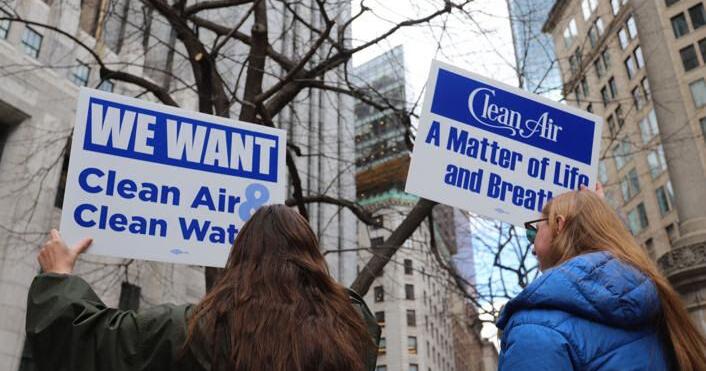Inside the EPA: Whistleblowers Sound Alarm on Dangerous Agency Downsizing

In a passionate display of professional solidarity, EPA employees from the greater Boston area convened on March 31, 2025, to address the Trump administration's controversial proposal to dramatically slash the agency's budget. The proposed cuts, framed as a strategy to reduce government spending, have sparked significant concern among environmental professionals who view the reductions as potentially devastating to critical environmental protection efforts.
The gathering highlighted the potential consequences of substantial budget cuts, with employees expressing deep apprehension about the long-term environmental and public health implications. Speakers at the meeting emphasized that the proposed spending reductions could compromise crucial environmental monitoring, research, and regulatory enforcement programs that protect air and water quality across the nation.
Career EPA professionals argued that the budget cuts represent more than just financial constraints—they symbolize a broader threat to environmental safeguards that have been carefully developed over decades. Many attendees stressed that what the administration labels as "waste" are actually essential investments in protecting public health and environmental sustainability.
The meeting underscored the employees' commitment to their mission, despite the challenging political landscape. They discussed strategies for maintaining critical environmental protection efforts even in the face of potential funding limitations, demonstrating resilience and dedication to their core professional responsibilities.
